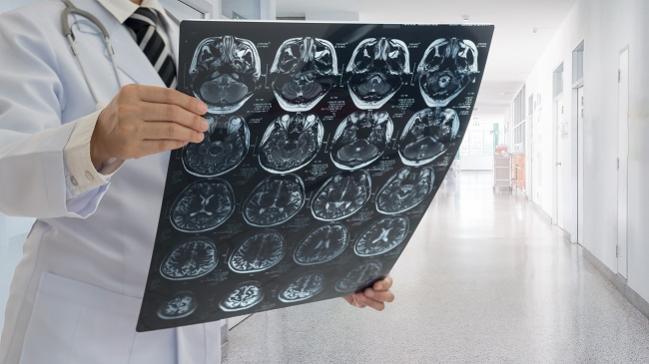European Consortium Seeks to Increase the Role of Cardiologists in Acute Ischemic Stroke Care
To close the care gap, cardiologists should be allowed to participate in shorter endovascular trainings given their catheter experience, says one expert.

PARIS, France—Given their extensive catheter-based skills and 24-hour coverage schedule that’s already in place, some interventional cardiologists say they can play an immediate and important role in catching up with the need for acute ischemic stroke care in Europe.
On the closing day of EuroPCR 2018, in a joint session with the European Society of Cardiology (ESC) Council on Stroke, Petr Widimsky, MD, PhD (Charles University, Prague, Czech Republic), said that with the advent of mechanical thrombectomy to treat large-vessel strokes, there is a now “huge gap that will take the next 20 years to disappear” if the status quo continues. “The solution should be fast, otherwise thousands of stroke patients will remain disabled due to no access to existing modern treatment,” he said.
The same issue arose in the United States back in 2015,when it was also estimated that not enough neurointerventionalists were available to meet the clinical need. Since then, Widimsky said US neurosurgeons have embraced the technology and account for up to two-thirds of mechanical thrombectomy operators in the country today as endovascular procedures are now part of their training curriculum.
The European situation is different, however, as “more than 90%” of mechanical thrombectomy cases today are performed by neuroradiologists, and neurosurgeons in Europe do not receive catheter-based training, he explained.
Meeting with several European stroke and neurointervention societies, Widimsky and other members of the ESC Council on Stroke have been seeking to draft an abbreviated training proposal for interested interventional cardiologists who cannot afford to enroll in the traditional 2-year endovascular stroke training. He called the 2-year program “neither realistic nor necessary” for cardiologists who already have carotid stenting experience. “It is an artificial barrier to keep them out,” asserted Widimsky.
Instead, the joint committee agreed that the training for cardiologists can be “as short as 2 to 3 months” and based on case load as opposed to training duration and a full-time requirement. Additionally, “the need for interventional cardiologists to enter the stroke training should be assessed locally and based on the unmet needs of stroke patients in the given region,” Widimsky said. He advised that cardiologists should not be performing elective intracranial procedures.
The consortium plans to publish a paper with all of their conclusions in the coming months, he told TCTMD. “We currently don't have the resources to organize [a program] on a European level, so I think our document will give some guidance,” Widimsky said. “This should be organized on a national or even regional level.”
Preventing a Turf War
Addressing the obvious hurdle that interventionalists face in this field—the potential to step on the toes of the neurointerventionalists who currently perform acute stroke interventions—panelist Hüseyin Ince, MD, PhD (Vivantes Hospital Friedrichshain, Berlin, Germany), suggested during the session that cardiologists seeking to become involved should try to compromise and see themselves as a “little brother” to neuroradiologists.
The focus is on patient care, and the reason for jumping into acute stroke is not to start a turf war, but to address the fact that a lot of patients with acute stroke are not currently treated optimally, he said. Once the reliable endovascular stroke centers are established in the next 5 to 10 years, it’s possible cardiologists could return acute stroke care to the domain of neurointerventionalists, which might engender greater cooperation between specialties and overcome some of the political hurdles, Ince commented.
However, neurologist Michael D. Hill, MD MSc (University of Calgary, Canada), told TCTMD in an email that the care gap in Europe will likely be better closed by “invest[ing] the time and effort training neurologists” to perform procedures like mechanical thrombectomy. “There is very little chance that [interventional cardiologists] could develop the neurological thinking required for acute decision-making in 3 months, let alone the technical expertise to navigate the [aortic] arch and intracranial circulation,” he said.
Additionally, Hill commented “that overall, the general and larger problem is not the number of interventionalists but instead the regional systems to centralize stroke care and get stroke patients to stroke centers. Stroke is a regional disease like trauma, and the solution to a political problem of regionalizing stroke care is political.”
Widimsky told TCTMD that “it's difficult to predict” what will happen a decade from now as “this will differ from country to country or even hospital to hospital based on local personnel and staff issues.”
In the meantime, he has the following recommendation for cardiologists who might be interested in training in this field: “Just start reading. I spent 1 year by reading before I started. Then to go to some place where it is done to see how they are working, how they are organized, and how it is done technically to learn something, and then start.”
Yael L. Maxwell is Senior Medical Journalist for TCTMD and Section Editor of TCTMD's Fellows Forum. She served as the inaugural…
Read Full BioSources
Widimsky P. Presentation of the problem: current guidelines versus limited access to acute stroke interventional services. Presented at: EuroPCR 2018. May 25, 2018. Paris, France.
Widimsky P. Joint proposal of the ESC Council on Stroke and EAPCI for limited training duration of interventional cardiologists to treat acute stroke. Presented at: EuroPCR 2018. May 25, 2018. Paris, France.
Widimsky P. Key messages from the inter-society meeting (ESO, ESMINT, EAN, ESNR, SAFE, EANS, SVIN, CIRSE, SNIS, ESC CoS) ESO, Gothenburg, May 15, 2018. Presented at: EuroPCR 2018. May 25, 2018. Paris, France.
Disclosures
- Widimsky and Hill report no relevant conflicts of interest.


Comments